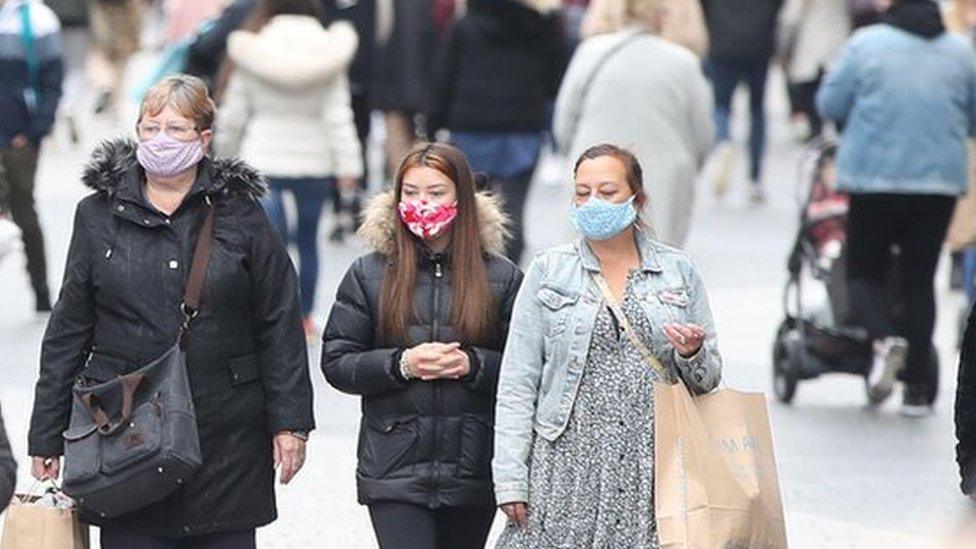Covid: Hope for quarantine-free air travel - minister
- Published
- comments
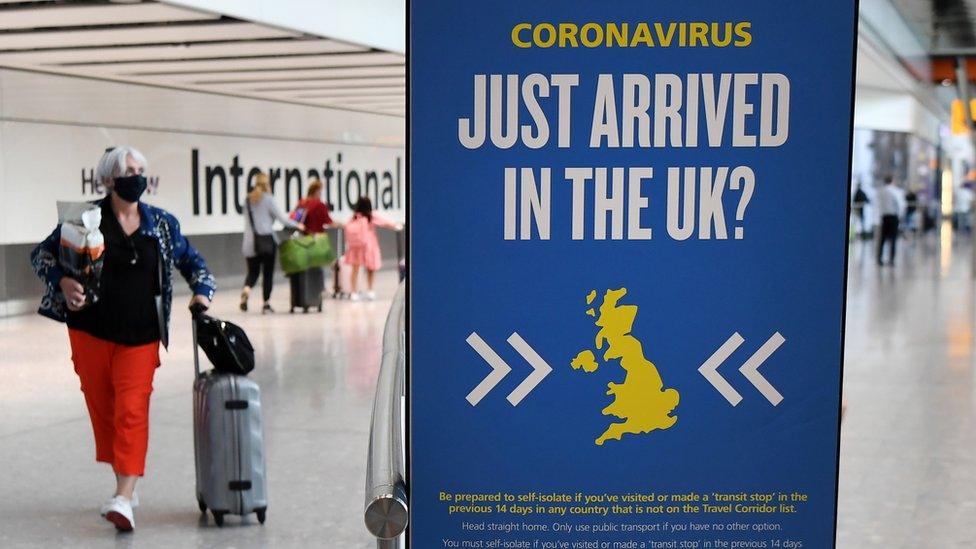
The UK is making "good progress" in developing a testing regime to reduce the quarantine period for international arrivals, the transport secretary has said.
The "test and release" programme could allow a "much reduced" self-isolation period, Grant Shapps said.
It is currently 14 days for many international arrivals.
Mr Shapps also said rapid tests being used in Liverpool could "open the way" for quarantine-free air travel.
He told an airport industry conference that the government aimed to launch the "test and release" programme after England's lockdown ends - currently due to be 2 December.
"Beyond the lockdown, this should encourage many more people to book flights with confidence knowing there is an option that allows them to shorten self isolation," the transport secretary said.
The tests would be paid for by passengers arriving in the UK but the Department for Transport would not comment on how much they might cost.
In other developments:
The first effective coronavirus vaccine can prevent more than 90% of people from getting Covid-19, a preliminary analysis shows. Developers Pfizer and BioNTech described it as a "great day for science and humanity"
Wales' 17-day firebreak lockdown has ended, meaning people can travel anywhere within the country, two households can again form a bubble and businesses that shut can now reopen
Scotland's First Minister Nicola Sturgeon said the country's Covid-19 restrictions are "highly unlikely" to be eased when they are reviewed on Tuesday
The coronavirus mutation causing concern in Denmark has arisen before in mink in the Netherlands, scientists have said - but it did not spread to humans there
Mr Shapps said the government was working with other countries to help establish an "international standard" for self-isolation and testing to be carried out before travelling to and from the UK, to stop passengers having to quarantine on arrival in their destination country.
And he said quick-turnaround tests being trialled in Liverpool gave "some hope for optimism" as they could "open the way for non-quarantine air travel".
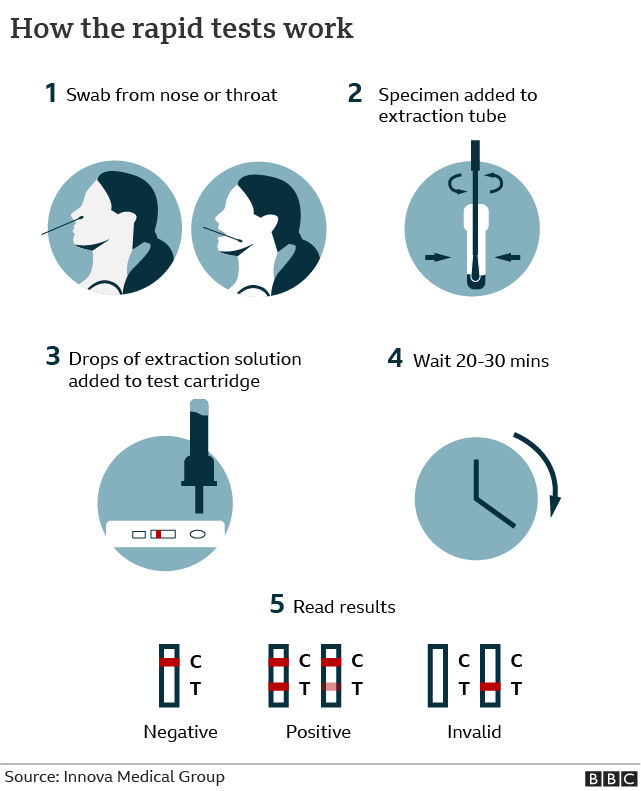
The air travel industry has been hit hard by the drop in passenger numbers since the start of the pandemic, with airlines such as British Airways and EasyJet cutting thousands of jobs.
Airline and airport groups have called on governments around the world to provide financial support for the struggling industry.
Shadow transport secretary Jim McMahon told the conference it was "inconceivable" the government had not taken more action to limit job losses across the aviation industry, adding that Mr Shapps's "warm words" needed "to be translated into action".
Anyone arriving into the UK must self-isolate for 14 days unless travelling from a country listed by the government, external, with some exceptions for certain occupations.
The mass coronavirus testing programme launched in Liverpool last week is the first trial of whole-city testing in England. All residents are being offered regular Covid-19 tests - whether or not they have symptoms.
Children aged 11 and over will be tested in schools as part of the scheme, the city's council has said.
The pilot includes a mix of existing swab tests and the new lateral flow tests - which can provide a result within an hour without the need to use a lab.
Earlier, Environment Secretary George Eustice told BBC Breakfast the new "lateral flow" test was available to everyone in Liverpool and could be a "major breakthrough" if successful.
"A test is only as good as the speed with which you can turn a result around," he said.
"What we've really been focusing on more recently is a faster test, so that people can act more quickly to prevent the spread of the virus so this, if we can make it work, is a major breakthrough."
BBC health and science correspondent James Gallagher said rapid or "lateral flow" tests needed high levels of the virus in the body to work. It is not yet clear how good they are at catching people in the early stages of the infection, when the virus is still taking hold.
They are similar to pregnancy tests and are easy, cheap and fast.
Fluid from a nasal swab or saliva goes on to one end of the test, then a marking appears if the person is positive.

TEST AND TRACE: How does it work?
SOCIAL DISTANCING: Can I give my friends a hug?
LOOK-UP TOOL: How many cases in your area?
HOLIDAYS: Where can I go away in the UK?
QUARANTINE: Who must self-isolate after arriving in the UK?

The prime minister said last month that he shared "people's frustrations" at the turnaround times for results, following criticism of England's test-and-trace system.
Mr Johnson's comments came after figures for the week ending 14 October showed that just 15.1% of people who were tested received their result within 24 hours.
Last week, the government said it had hit its target of having the capacity to carry out 500,000 coronavirus tests a day across the UK by the end of October.
The data for 31 October showed just over 525,000 tests could be done - a doubling of capacity in two months. However, just under 300,000 tests were actually carried out.
Mr Johnson previously said mass testing had "the potential to be a powerful new weapon in our fight against Covid-19".
However, some health experts have criticised the Liverpool trial, with Allyson Pollock, professor of public health at Newcastle University, warning that plans to test asymptomatic people went against advice from the Scientific Advisory Group for Emergencies (Sage) to prioritise tests for those displaying symptoms.
Meanwhile on Sunday, another 156 people in the UK were reported to have died within 28 days of a positive coronavirus test, with a further 20,572 cases of the virus.

ESCAPE MIX: An hour of uplifting tunes to help you escape from the day to day stresses of life
ASK MARTIN LEWIS PODCAST: Talking you through the latest financial help for Lockdown 2.0

- Published9 November 2020
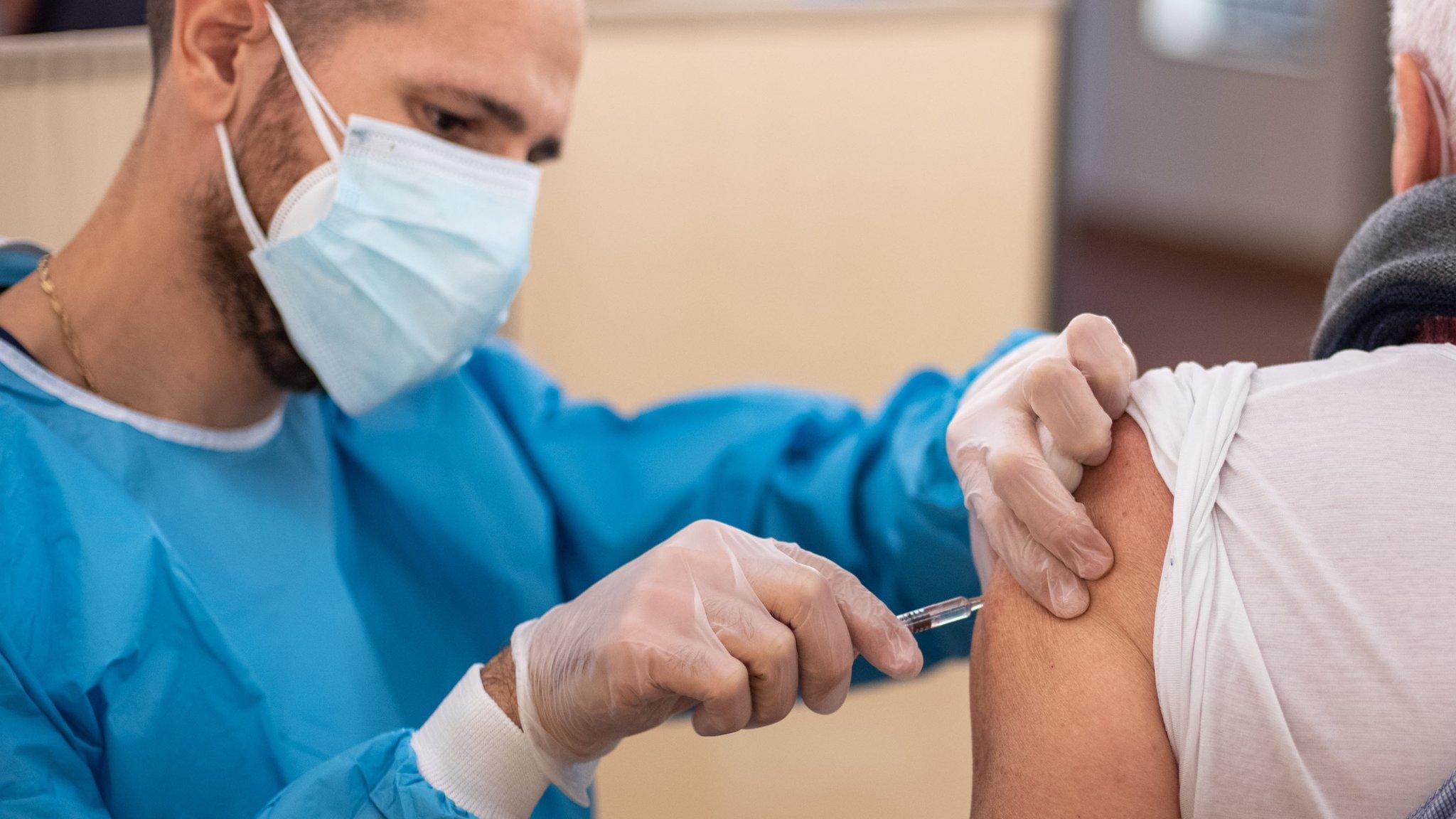
- Published6 November 2020
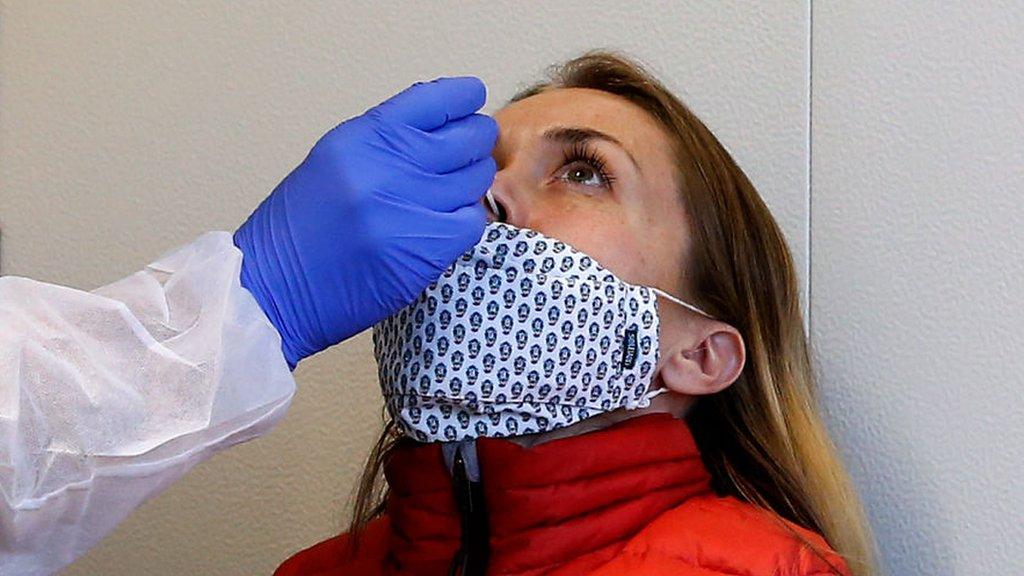
- Published6 November 2020
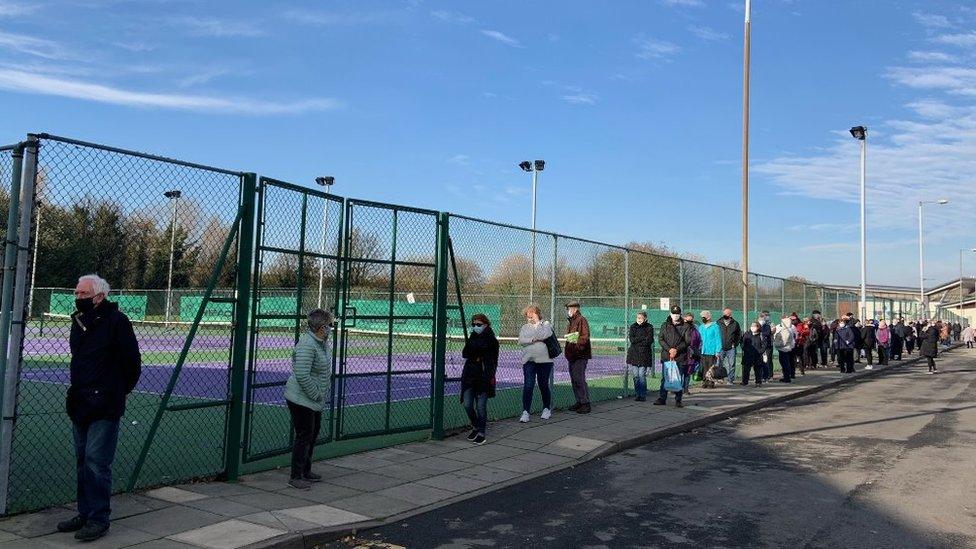
- Published3 November 2020
